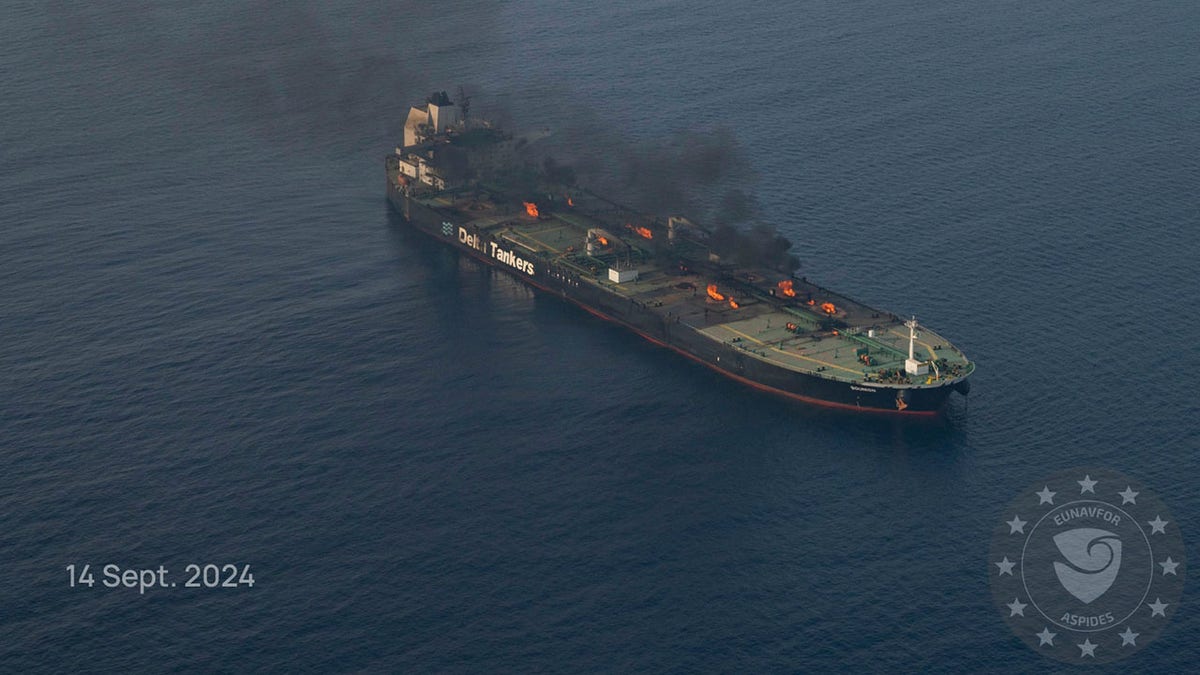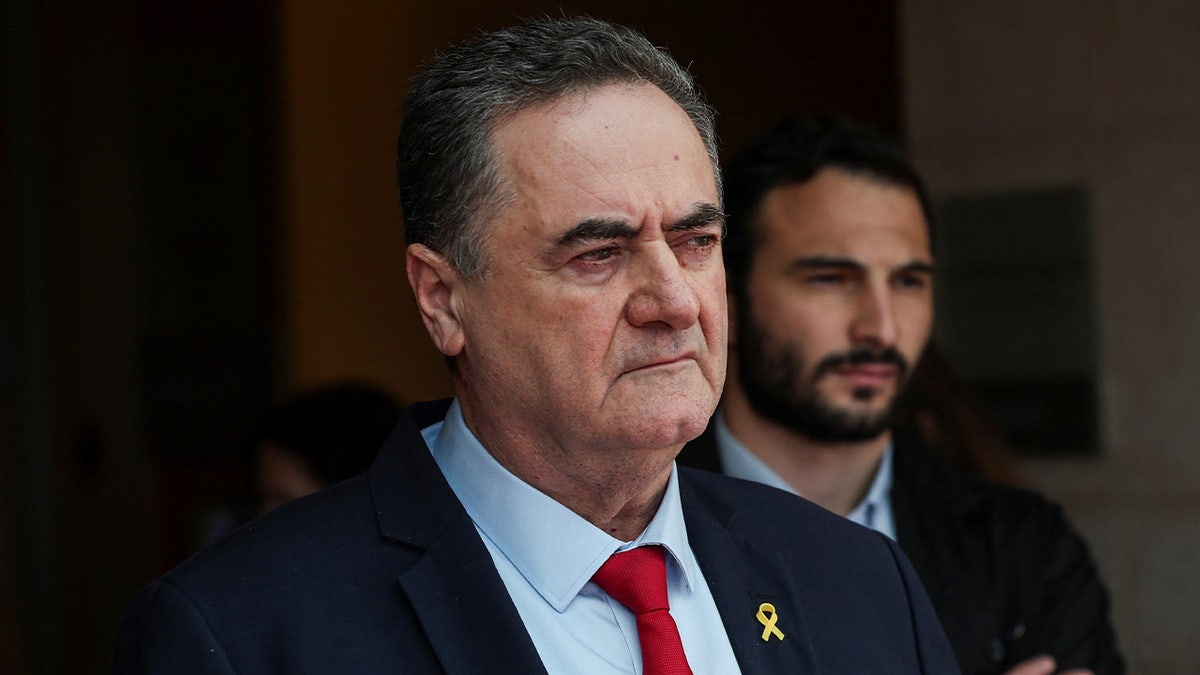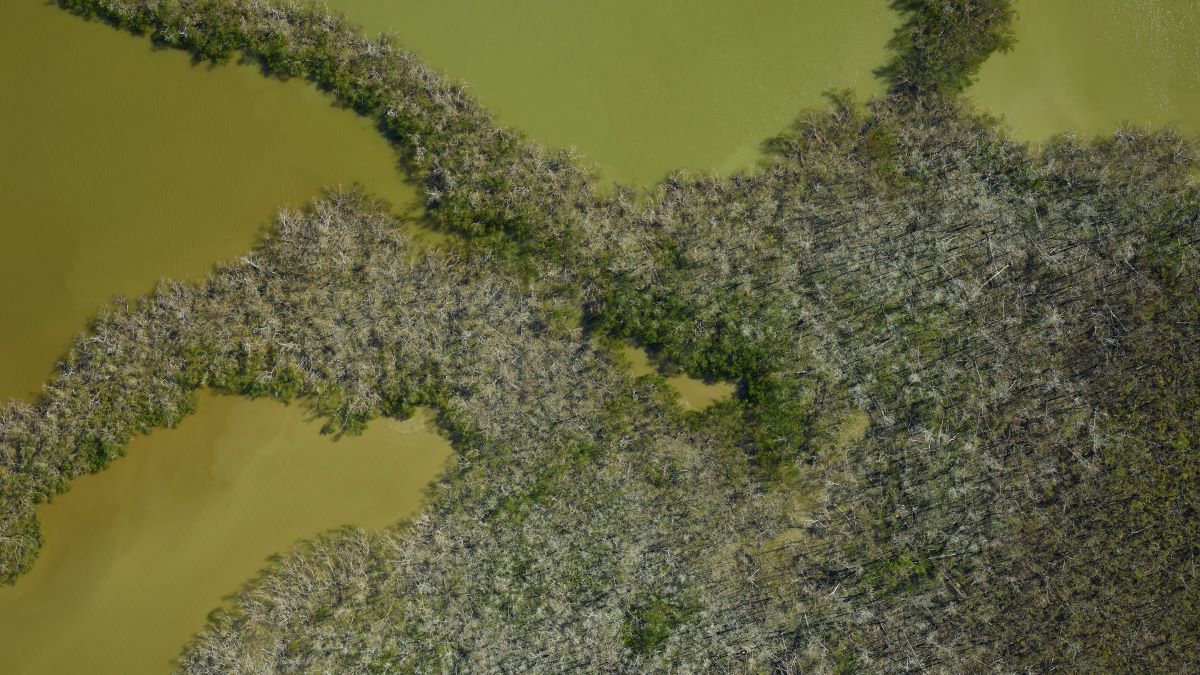World
State of the Union: Disagreements over enlargement timeline

In this edition of State of the Union, we take a look at the political response to the extreme weather and the institutional disagreements over the EU enlargement timeline.
State of the Union is back after our summer break – a period that saw soaring temperatures and fall-like storms like never before.
Again, this week, the weather in Europe was a tale of two stories.
In Greece, authorities further reinforced firefighting forces in the country’s northeast where a massive blaze, raging there since mid-August, flared up once more.
At the same time, an area stretching from northern Italy to Austria and Slovenia was hit by heavy rainfall and flash floods.
The fact that climate change is contributing to extreme weather has become commonplace, even in political circles.
Here’s the new master of the European Green Deal, EU Commission Vice President Maroš Šefčovič, in our interview earlier this week:
“No action at this stage would be the worst possible solution because: let’s look at this summer. Let’s look at last summer. Last summer we saw what was terrible. This summer was much worse. And we just can brace (ourselves) for what the next summers would look like, if we did not act.”
Šefčovič took over from Frans Timmermans, who resigned from the EU Commission to run in the Dutch elections in November.
Should he become the country’s next Prime Minister, he will likely face – together with his EU colleagues – a major issue: the enlargement of the European Union.
A topic that has been on the back-burner for many years, but that has now gotten increased attention because of the fallout from the war in Ukraine.
This week, EU Council President Charles Michel came up with a surprising proposal:
“We must talk about timing: we must talk about our homework, and I have a suggestion. As we prepare the EU’s next strategic agenda, we must set ourselves a clear goal: I believe we must be ready on both sides by 2030 to enlarge.”
2030 – that’s in less than seven years! The reaction to Michel’s proposal: practically zero.
A key role in the enlargement process is played by the European Parliament, as it must ratify the accession treaties with the applicant countries.
We discussed this with the man who oversees this process, David McAllister, chairman of the Committee on Foreign Affairs in the European Parliament.
Euronews: Targeting 2030 for the next round of enlargement – is that a good idea?
McAllister: Well, the procedure for becoming a member of the European Union is very clear. According to our treaties, a country which respects our values and is committed to promoting them can join the European Union in the end. Of course, this means a long process, but all conditions need to be met. So, I would not focus so much on a precise state, but I would always say a country is ready to join the European Union when it is actually ready. And that means in the end, all conditions need to be met. Financial, economic, political and judicial.
Euronews: The European Commission basically shot down Charles Michel’s proposal, suggesting that EU membership is “merit-based” and cannot be sped up. To me, such public disagreement doesn’t seem to be the message they want to send … Your thoughts?
McAllister: I wouldn’t overrate these disagreements, both the Council and the Commission, and by the way, also the European Parliament are in favour of other countries joining the European Union. And we all agree that, of course, this process has to be a merit-based process and that each country needs to be assessed individually. In the end, joining the European Union is not a convoy, it’s a regatta. And a country that is ready to join the European Union will then be welcomed in our family of nations.
Euronews: French President Macron has again made the argument that the EU needs to reform itself first before new members can be admitted. How realistic is this, given the fact that the war in Ukraine has stepped up the pressure to speed up the enlargement process?
McAllister: Well, President Macron is right. Yes, the European Union needs to be reformed. Already with 27 member states, it’s difficult to organise our organisation, which is still based on rules which were made for nine, 12 or 15 member states. So what we have to do in the next few years is reform the European Union, make it more effective, make it more democratic, make it more engaged, and on the other hand, prepare for the new members. So, you could do the one sitting and the other thing in parallel. We need to reform and we need to support potential member states actually joining our bloc. I believe that the European Union should not be a closed shop, the 27 member states. We should remain open to new members
Euronews: And finally, I want you to take a guess – how many member states will the EU have in 2030?
McAllister: I think that we will use the next seven years to reform our European Union and to support potential member states, and that there will be more than 27 member states. But if this already happened by 2030, this does not only lie in our hands, but in the end it is mainly the task of the candidate country to actually adopt and implement all the necessary reforms.
Whether Ukraine will join the EU any time soon depends on the outcome of the war – whenever that will be.
One of the rather bizarre episodes of that war came to a definite end this week: the funeral of Yevgeny Prigozhin.
A private burial was held for the head of the Wagner mercenary group in St. Petersburg, following a suspicious plane crash two months after his brief mutiny that challenged the authority of Vladimir Putin.
The circumstances of the crash remain murky. And we may never find out more.
This week, the Kremlin announced that an international investigation into the crash was out of the question.

World
EU preparing sanctions on Russia's 'shadow fleet' after cable damage

Countries in the region have been on alert following a string of incidents involving undersea cables and gas pipelines in the Baltic Sea since 2022.
The EU Foreign Policy chief has said the bloc is preparing sanctions on what it calls Russia’s ‘shadow fleet’ after an undersea power cable connecting Finland and Estonia was damaged in the Baltic Sea.
Kaja Kallas posted the joint statement from the EU Commission and the High Representative leading the investigation on X, saying the “suspected vessel is part of Russia’s shadow fleet, which threatens security and the environment, while funding Russia’s war budget.”
Kallas also said the EU was strengthening efforts to protect undersea cables, adding that there was no risk to regional electricity supplies.
That comes after Finnish authorities detained a Russian ship as part of an investigation into damage to the Estlink-2 power cable.
It carries electricity from Finland to Estonia across the Baltic Sea and went down on Wednesday.
Finnish police and border guards boarded the Eagle S vessel on Thursday and took over the command bridge, Helsinki Police Chief Jari Liukku said at a press conference.
The vessel was being held in Finnish territorial waters, police said.
The Eagle S is flagged in the Cook Islands but was described by Finnish customs officials and the European Union’s executive commission as part of Russia’s shadow fleet of fuel tankers.
Those are aging vessels with obscure ownership, acquired to skirt Western sanctions and operating without Western-regulated insurance.
Russia’s use of the vessels has raised environmental concerns about accidents given their age and uncertain insurance coverage.
The Eagle S’ anchor is suspected of causing damage to the cable, Yle television reported, citing police statements.
The Estonian government met in emergency session over the incident.
The shadow tankers “are helping Russia to earn funds that will aid Russian hybrid attacks,” Prime Minister Kristen Michal said at a news conference.
“We need to improve the monitoring and protection of critical infrastructure both on land and on sea.”
He said repairs to the cable could take as long as seven months.
“Repeated damage to Baltic Sea infrastructure signals a systemic threat, not mere accidents,” Estonia’s President Alar Karis said on X.
“Estonia will take action to counter this threat, together with Finland and other NATO allies.”
On high alert
Countries in the region have been on alert following a string of incidents involving undersea cables and gas pipelines in the Baltic Sea since 2022.
Two data cables — one running between Finland and Germany and the other between Lithuania and Sweden — were severed in November.
Germany’s defence minister said officials had to assume the incident was “sabotage,” but he didn’t provide evidence or say who might have been responsible.
And the Nord Stream pipelines that once brought natural gas from Russia to Germany were damaged by underwater explosions in September 2022.
Authorities have said the cause was sabotage and launched criminal investigations.
World
Saudi executions rose sharply in 2024

World
Israel launches strikes in Yemen on Houthi military targets, IDF says

The Israeli military claimed responsibility for a series of airstrikes in Yemen on Thursday that hit Sana’a International Airport and other targets in the Houthi-controlled capital.
The Israel Defense Forces said the strikes targeted military infrastructure used by the Houthis to conduct acts of terrorism.
“The Houthi terrorist regime has repeatedly attacked the State of Israel and its citizens, including in UAV and surface-to-surface missile attacks on Israeli territory,” the IDF said in a statement.
“The targets that were struck by the IDF include military infrastructure used by the Houthi terrorist regime for its military activities in both the Sana’a International Airport and the Hezyaz and Ras Kanatib power stations. In addition, the IDF struck military infrastructure in the Al-Hudaydah, Salif, and Ras Kanatib ports on the western coast.”
PROJECTILE FROM YEMEN STRIKES NEAR TEL AVIV, INJURING MORE THAN A DOZEN: OFFICIALS
Black smoke rises near Sana’a International Airport in Yemen after reported Israeli airstrikes. (Reuters)
The strikes come days after Israel’s defense minister promised retaliation against Houthi leaders for missile strikes launched at Israel from Yemen.
Houthi rebels, who control most of northern Yemen, have fired upon Israel for more than a year to support Hamas terrorists at war with the Jewish State. The Houthis have attempted to enforce an embargo on Israel by launching missiles and drones at cargo vessels crossing the Red Sea – a major shipping lane for international trade.
US NAVY SHIPS REPEL ATTACK FROM HOUTHIS IN GULF OF ADEN

This photo released by the European Union’s Operation Aspides naval force shows the oil tanker Sounion burning in the Red Sea following a series of attacks by Yemen’s Houthi rebels, on Saturday Sept. 14, 2024. (European Union’s Operation Aspides via AP)
Overall, the Houthis have launched over 200 missiles and 170 drones at Israel since Hamas’s Oct. 7, 2023, massacre of 1,200 people. Since then, the Houthis have also attacked more than six dozen commercial vessels – particularly in the Bab-el-Mandeb, the southern maritime gateway to Egypt’s Suez Canal.
On Saturday, a projectile launched into Israel from Yemen struck Tel Aviv and caused mild injuries to 16 people, Israeli officials said. The incident was a rare occasion where Israeli defense systems failed to intercept an attack.
NETANYAHU WARNS HOUTHIS AMID CALLS FOR ISREAL TO WIPE OUT TERROR LEADERSHIP AS IT DID WITH NASRALLAH, SINWAR

Israeli Defense Minister Israel Katz looks on, amid the ongoing conflict in Gaza between Israel and Hamas, in Jerusalem, November 7, 2024. (REUTERS/Ronen Zvulun)
Israel retaliated by striking multiple targets in areas of Yemen under Houthi control, including power plants in Sana’a.
Israeli leaders have vowed to eliminate Houthi leadership if the missile and drone attacks do not cease.
On Monday, Israeli Defense Minister Israel Katz said, “We will strike their strategic infrastructure and decapitate their leaders. Just as we did to [former Hamas chief Ismail] Haniyeh, Sinwar and Nasrallah, in Tehran, Gaza and Lebanon – we will do in Hodeidah and Sanaa.”
Prime Minister Benjamin Netanyahu has also urged Israelis to be “patient” and suggested that soon the military will ramp up its campaign against the Houthis.
“We will take forceful, determined and sophisticated action. Even if it takes time, the result will be the same,” he said. “Just as we have acted forcefully against the terror arms of Iran’s axis of evil, so too will we act against the Houthis.”
Fox News Digital’s Amelie Botbol contributed to this report.
-
/cdn.vox-cdn.com/uploads/chorus_asset/file/24924653/236780_Google_AntiTrust_Trial_Custom_Art_CVirginia__0003_1.png)
/cdn.vox-cdn.com/uploads/chorus_asset/file/24924653/236780_Google_AntiTrust_Trial_Custom_Art_CVirginia__0003_1.png) Technology6 days ago
Technology6 days agoGoogle’s counteroffer to the government trying to break it up is unbundling Android apps
-

 News7 days ago
News7 days agoNovo Nordisk shares tumble as weight-loss drug trial data disappoints
-

 Politics7 days ago
Politics7 days agoIllegal immigrant sexually abused child in the U.S. after being removed from the country five times
-

 Entertainment1 week ago
Entertainment1 week ago'It's a little holiday gift': Inside the Weeknd's free Santa Monica show for his biggest fans
-

 Lifestyle1 week ago
Lifestyle1 week agoThink you can't dance? Get up and try these tips in our comic. We dare you!
-
/cdn.vox-cdn.com/uploads/chorus_asset/file/25672934/Metaphor_Key_Art_Horizontal.png)
/cdn.vox-cdn.com/uploads/chorus_asset/file/25672934/Metaphor_Key_Art_Horizontal.png) Technology2 days ago
Technology2 days agoThere’s a reason Metaphor: ReFantanzio’s battle music sounds as cool as it does
-

 Technology1 week ago
Technology1 week agoFox News AI Newsletter: OpenAI responds to Elon Musk's lawsuit
-

 News3 days ago
News3 days agoFrance’s new premier selects Eric Lombard as finance minister

















